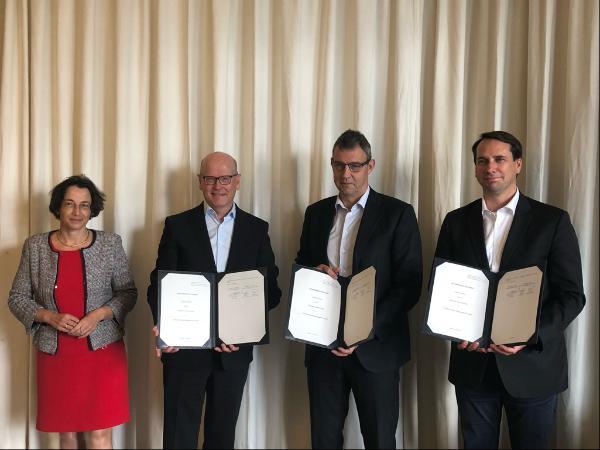
- The EIB has signed a €300 million loan agreement with Svenska Cellulosa Aktiebolaget (SCA) to modernise the Obbola kraftliner mill.
- The financing will support the upgrade of the mill for further enhanced production of recyclable and renewable packaging with a process known as papermaking 4.0.
- The upgraded mill will be more efficient in terms of both production and energy use, while also reducing its carbon footprint.
SCA will borrow €300 million from the European Investment Bank (EIB) to modernise and upgrade its kraftliner mill at Obbola, in northern Sweden. The new equipment to be used by the plant — following a process called papermaking 4.0 — will enable machinery to be digitally integrated. This will make the production process much more efficient while also creating high-quality products, in line with the European Union’s vision for digital transformation. The project is also expected to have a positive impact on the local economy.
EIB Vice-President Thomas Östros said: “Apart from making this production facility more energy efficient, the project also has a good circular economy angle — it will double the utilisation of recycled fibre for its manufacturing process. Especially in today’s economy, packaging for products and deliveries plays an increasingly important role, meaning that the ability to use recycled fibre has quite an impact on the use of natural resources.”
President and CEO of SCA Ulf Larsson said: “The demand for sustainable packaging is increasing and SCA decided in 2019 to expand the manufacturing capacity at the Obbola mill from 450 000 tonnes to 725 000 tonnes. Through this investment the need for fossil fuels in critical parts of the production process will be eliminated resulting in a significantly lower carbon footprint. As a result of this investment in the world’s most advanced kraftliner facility we will considerably improve the mill’s competitiveness, sustainability footprint and product quality.”
The upgrade and modernisation of the mill will improve the production of recyclable and compostable packaging solutions from recycled fibre and from renewable and sustainable wood sources, making sure it is in line with EU and EIB objectives in terms of climate change mitigation.

